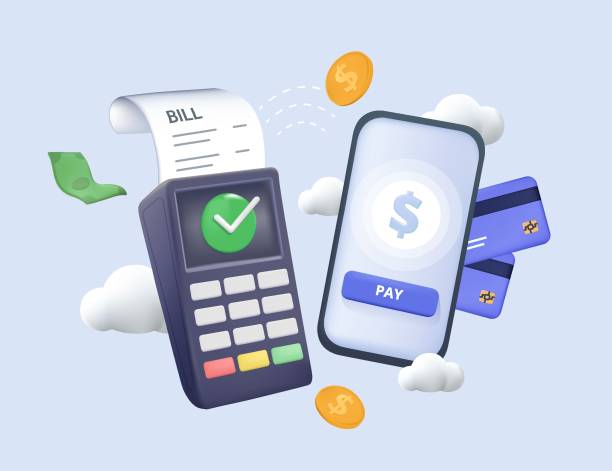So you’re thinking about buying a website, huh? The idea of being your own boss and running a successful online business sounds pretty sweet. But hold up just a sec before you hand over that cash. Buying an existing website can be a smart move, but there’s a lot that website sellers aren’t telling you. Like how much work it’ll actually take to maintain the site. Or hidden costs that could eat into your profits. Before you take the plunge, make sure you know what you’re getting into. In this article, we’ll talk about the stuff website sellers probably won’t mention until after you’ve signed on the dotted line. We’ll break down the pros and cons so you can make an informed decision. Because as exciting as buying a website may be, you need the full picture before you fork over your hard-earned money.
The Pros and Cons of Buying an Existing Website

Less Work Required
One of the biggest benefits of buying an existing website is that a lot of the hard work has already been done. The site is up and running, content has been created, and an audience has already been built. You can simply step in and take over without having to start from scratch.
Established Traffic and Revenue
If you buy a website that’s already successful, it likely has an established flow of organic traffic and revenue. You can earn money from day one and avoid the risk of launching a new site that may or may not gain traction. Of course, you’ll want to make sure that traffic and revenue have been growing consistently over time.
Need for Upgrades and Improvements
While an existing website provides a solid foundation, it will still require ongoing work to optimize. The content, design, user experience, SEO, and monetization strategies may need upgrading to keep up with changes in search algorithms, technology, and user preferences. You’ll have to dedicate time to evaluating what needs improving and then making the necessary changes.
Higher Costs
Established websites are attractive to buyers, so they often come with a premium price tag. While the existing assets add a lot of value, you have to ensure the price you pay is worth the future earning potential. It’s possible to overpay for a website if you don’t thoroughly analyze its metrics and growth trends.
Transferring Assets and Ownership
The process of transferring assets and ownership of an existing website can be complicated. There are legal documents to sign, accounts to transfer, and records to obtain from the seller. If not handled properly, this process could lead to issues like loss of traffic, revenue, or search rankings. Make sure you understand all that’s involved before buying a website.
Questions to Ask Website Sellers Before Making a Purchase

What's included in the sale?
Make sure you know exactly what’s included, like the domain name, hosting, content, images, logos, social media accounts, email lists, etc. Some sellers may try to retain certain assets, so get specifics.
How much traffic and revenue does the site generate?
Ask for access to analytics and sales data to verify the numbers. Check sources of traffic and revenue to ensure they’re sustainable. Watch out for inflated traffic stats or revenue that comes primarily from a single source.
What work is required to maintain and improve the site?
Running a website takes ongoing effort. Ask about key tasks, time required, and costs to outsource work. See if the site uses outdated technology that would need upgrading. Make sure you understand what’s really involved before you take over.
What's the site's search ranking and backlink profile?
Higher search rankings and more high-quality backlinks mean a site has greater authority and visibility. Ask for reports to check the site’s standings and backlink sources. See if there are easy ways to boost rankings and build new links to increase traffic.
What legal issues or liabilities should you be aware of?
Ask if the site has ever been penalized by Google or if there are any pending legal claims regarding content, privacy policy, terms of service, intellectual property, or anything else. You don’t want to be blindsided by legal problems after purchasing the site.
With the right questions and careful due diligence, you can uncover the truth about a website for sale and avoid getting stuck with a dud. Do your homework, get specifics, and make sure there aren’t any nasty surprises waiting for you if you become the new owner. An informed buyer is a smart buyer.
How to Spot Red Flags When Buying Websites

Before handing over your hard-earned cash for a website, do some digging to make sure you’re getting what you pay for. Shady website sellers may try to hide issues with the site to make a quick sale.
Check Traffic Stats
Don’t just take the seller’s word on how much traffic the site gets. Ask to see Google Analytics reports going back at least 6-12 months. Look for steady or growing traffic, not a sudden unexplained spike. See where the traffic is coming from—if most of it is from the seller’s other sites or paid ads, that’s a bad sign. Legitimate traffic from search engines and social media is ideal.
Scan for Duplicate Content
Run the site through a plagiarism checker tool. Copied content won’t rank well in search engines and won’t provide value to visitors. You want original, high-quality content.
Do a Google Search
Search for the website name along with terms like “penalized,” “banned,” or “blacklisted.” If the site has been penalized by Google or other search engines for violating their guidelines, it will be very difficult to rank and get traffic. See if the seller discloses any penalties—if not, that’s a red flag.
Check the Site’s Age and Design
An older site, especially one with a recent redesign, is better than a newly created site. It takes time to build authority and trust. An outdated design could also turn off visitors and hurt conversions. Ask if the seller has kept the site up-to-date with the latest web standards and best practices.
Review the Monetization Model
If the site makes money through ads, affiliate links, or product sales, ensure the revenue model is sustainable and not misleading. Ask to see earnings reports to verify the site’s potential. Be wary of sites with little earnings history. Also check if the revenue is well-diversified or mostly comes from one source.
Following up on these red flags will help you avoid buying a dud. Do your due diligence, get answers to all your questions, and make sure the site is set up for long-term success. With the right site, you’ll be building equity and earning an income in no time.
Conclusion
So there you have it. Buying a website isn’t all sunshine and rainbows. There are some messy parts that sellers conveniently leave out. But don’t let that discourage you. With the right research and patience, you can find an amazing website that will be a perfect fit. The key is going into the process with realistic expectations. Know that there will likely be some challenges and surprises along the way. But if owning and running a website is your dream, it’ll be worth powering through the difficult parts. Approach each website you look at with curiosity and caution. And trust your gut – if something seems too good to be true, it probably is. The right website is out there waiting for you. Stay focused on your vision and don’t settle. You’ve got this!












